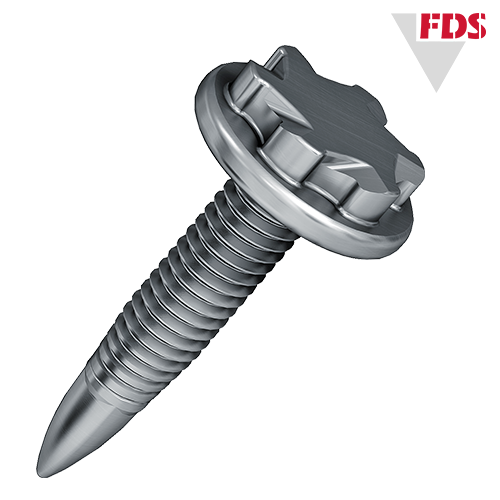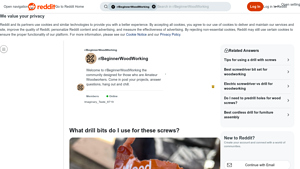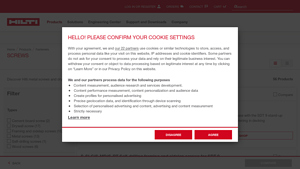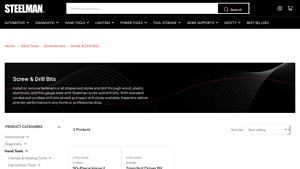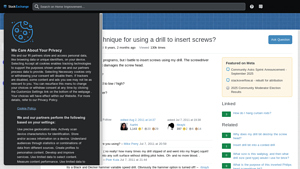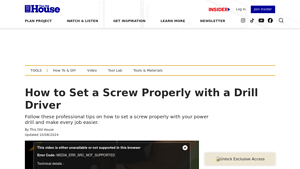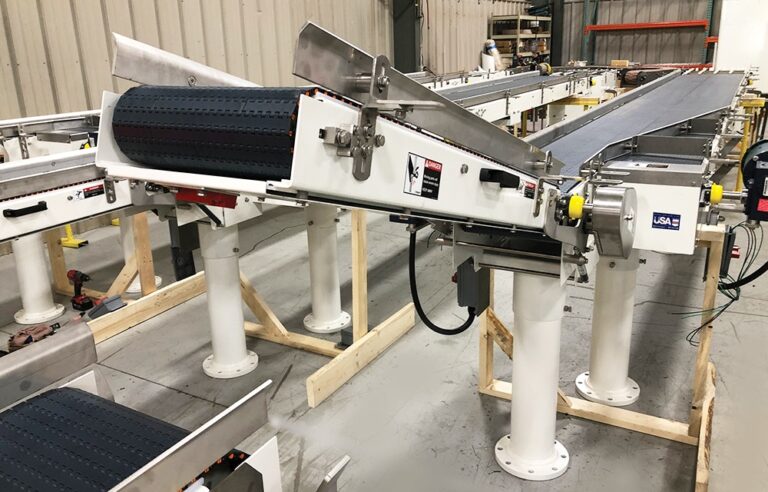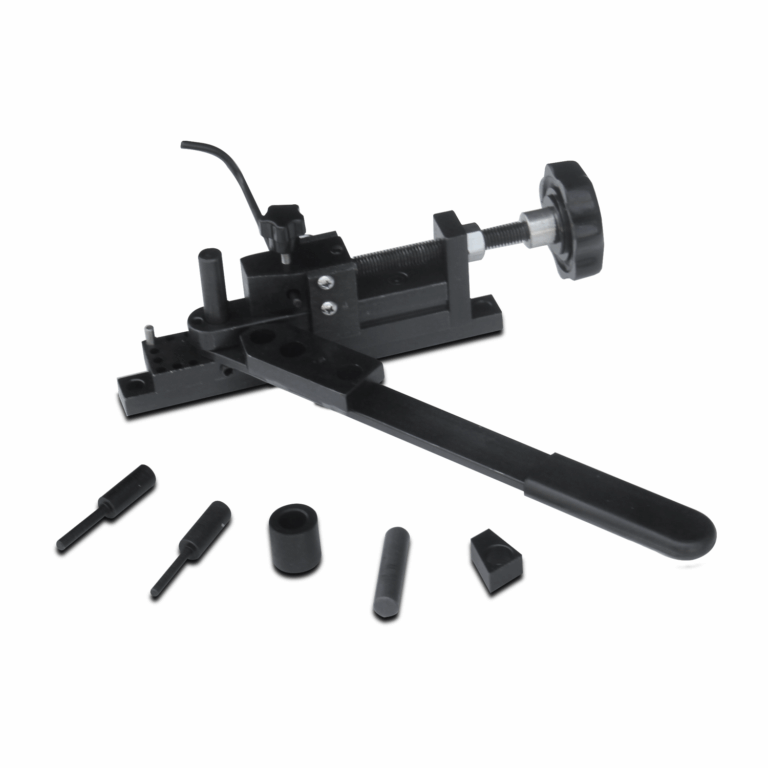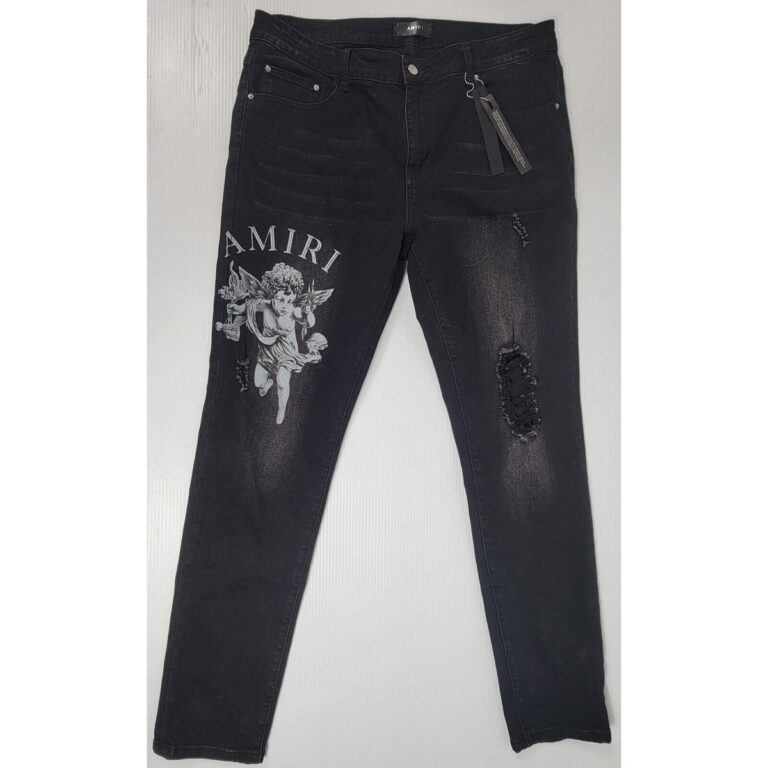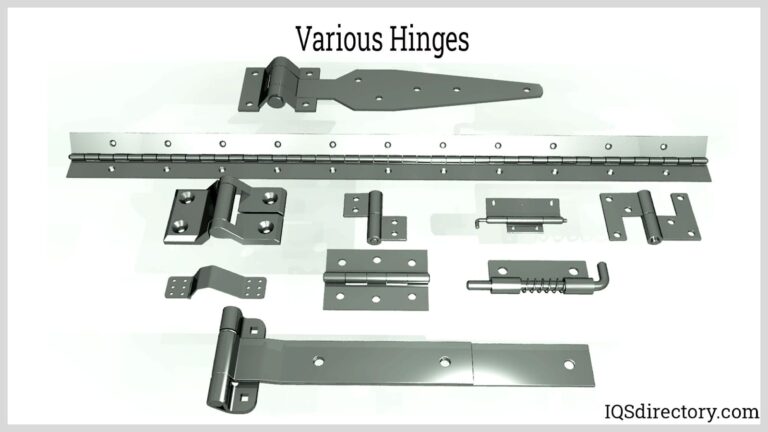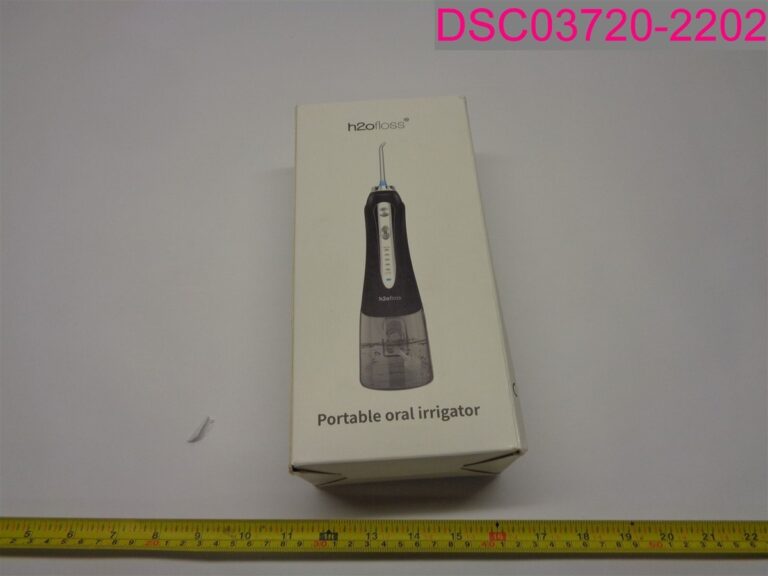How to Source Drill Screw Effectively: A 2025 Checklist
Introduction: Navigating the Global Market for drill screw
In today’s competitive landscape, sourcing high-quality drill screws can pose significant challenges for international B2B buyers. With a diverse array of options available, from self-drilling screws to heavy-duty variants, navigating the complexities of the global market requires a keen understanding of product specifications, supplier reliability, and cost-effectiveness. This guide is designed to empower buyers from Africa, South America, the Middle East, and Europe, including key markets like Germany and Vietnam, by providing a comprehensive overview of drill screws, their applications, and best practices for sourcing.
Throughout this guide, we will explore various types of drill screws, detailing their specific functions and advantages across different industries. We will also delve into the critical process of vetting suppliers, ensuring that you can identify trustworthy partners who meet your quality and delivery standards. Additionally, we will address cost considerations, helping you to balance quality with budget constraints while making informed purchasing decisions.
By equipping you with actionable insights and in-depth knowledge, this guide aims to enhance your procurement strategies, streamline your sourcing processes, and ultimately drive your business’s success in the global market for drill screws. Whether you’re looking to fulfill a large-scale project or secure a reliable supply chain, this resource will serve as your essential companion in achieving your goals.
Understanding drill screw Types and Variations
| Type Name | Key Distinguishing Features | Primary B2B Applications | Brief Pros & Cons for Buyers |
|---|---|---|---|
| Self-Drilling Screws | Integrated drill point eliminates pre-drilling | Metal roofing, HVAC installations | Pros: Fast installation, no pre-drilling needed. Cons: May not be suitable for very hard materials. |
| Heavy-Duty Self-Drilling | Larger diameter and length for robust applications | Structural applications, heavy machinery | Pros: High load-bearing capacity. Cons: Higher cost compared to standard screws. |
| Sheet Metal Screws | Designed for fastening metal sheets, often with a sharp point | Automotive, construction | Pros: Excellent for metal-to-metal fastening. Cons: Can strip easily if over-tightened. |
| Wood-to-Metal Screws | Specialized for joining wood to metal, often with a coarse thread | Furniture manufacturing, construction | Pros: Strong grip in mixed materials. Cons: Requires careful selection of length and diameter. |
| Corrosion-Resistant Screws | Made from materials that resist rust and corrosion | Outdoor applications, marine use | Pros: Longevity in harsh environments. Cons: Higher initial investment. |
What Are Self-Drilling Screws and Their Applications?
Self-drilling screws are designed with a drill point that allows them to penetrate materials without the need for a pre-drilled hole. This feature makes them particularly advantageous in metal roofing and HVAC installations, where speed and efficiency are critical. B2B buyers should consider their application environment; while self-drilling screws are excellent for many metal applications, they may not perform well in extremely hard materials.
How Do Heavy-Duty Self-Drilling Screws Differ?
Heavy-duty self-drilling screws are characterized by their larger diameter and length, making them ideal for structural applications and heavy machinery assembly. They can support greater loads, which is essential in industries that demand high strength and durability. However, buyers should be prepared for a higher cost, reflecting their robust capabilities, and ensure that their projects require the enhanced strength these screws provide.
What Are Sheet Metal Screws and Their Benefits?
Sheet metal screws are specifically designed for fastening metal sheets together and often feature a sharp point for easy penetration. They are widely used in the automotive and construction industries. While they provide strong metal-to-metal fastening, buyers must be cautious about over-tightening, which can strip the screw and compromise the joint. Proper selection based on the gauge of the metal is crucial for optimal performance.
How Do Wood-to-Metal Screws Function?
Wood-to-metal screws are engineered to create strong connections between wood and metal. They typically feature coarse threads that enhance grip in both materials. This type of screw is commonly used in furniture manufacturing and construction projects. When purchasing, B2B buyers should consider the specific length and diameter needed for their applications to ensure a secure fit without damaging either material.
Why Choose Corrosion-Resistant Screws?
Corrosion-resistant screws are made from specialized materials that withstand rust and corrosion, making them ideal for outdoor and marine applications. Their longevity in harsh environments justifies their higher initial cost. B2B buyers should evaluate the environmental conditions of their projects to determine if the investment in corrosion-resistant options is warranted, as these screws can significantly reduce maintenance costs over time.
Key Industrial Applications of drill screw
| Industry/Sector | Specific Application of drill screw | Value/Benefit for the Business | Key Sourcing Considerations for this Application |
|---|---|---|---|
| Construction | Fastening metal roofing and siding | Ensures durability and weather resistance | Material compatibility, corrosion resistance, local regulations |
| Automotive | Assembling vehicle body components | Provides structural integrity and vibration resistance | OEM specifications, tensile strength, bulk purchasing options |
| Manufacturing | Joining sheet metal in machinery | Enhances production efficiency and reduces assembly time | Size, thread type, and coating for specific machinery needs |
| Electronics | Mounting circuit boards and components | Ensures secure connections and reliability | Precision fit, material type, and electrical conductivity |
| Renewable Energy | Installing solar panel mounts | Supports sustainable energy solutions and efficiency | Load capacity, weatherproofing, and local sourcing options |
How Are Drill Screws Used in the Construction Industry?
In the construction sector, drill screws are essential for fastening metal roofing and siding. They provide robust connections that are resistant to harsh weather conditions, thereby enhancing the longevity of structures. For international buyers, particularly in Africa and the Middle East, sourcing screws that comply with local building codes and material standards is crucial. Additionally, understanding the required corrosion resistance based on regional climates can greatly impact the durability of the construction.
What Role Do Drill Screws Play in Automotive Manufacturing?
Drill screws are widely used in the automotive industry for assembling vehicle body components. Their design allows for quick installation while ensuring structural integrity and resistance to vibrations. B2B buyers must consider OEM specifications when sourcing these screws to guarantee compatibility with specific vehicle models. Furthermore, the tensile strength and material type are critical for ensuring safety and performance under various driving conditions.
How Are Drill Screws Essential in Manufacturing Processes?
In manufacturing, drill screws facilitate the joining of sheet metal in various machinery applications. Their use streamlines production processes by reducing assembly time and increasing efficiency. Buyers in this sector should focus on the size and thread type suitable for their machinery, as well as the coating needed for enhanced durability. Bulk purchasing options can also provide significant cost savings for manufacturers operating at scale.
Why Are Drill Screws Important in Electronics Assembly?
In the electronics industry, drill screws are vital for securely mounting circuit boards and other components. Their precise fit ensures reliable connections, which is crucial for the functionality of electronic devices. Buyers should prioritize the material type to prevent electrical interference and ensure long-term reliability. Additionally, sourcing screws that meet international quality standards can enhance product safety and performance in competitive markets.
How Do Drill Screws Support Renewable Energy Initiatives?
Drill screws are increasingly used in the renewable energy sector, particularly for installing solar panel mounts. They provide the strength and stability needed to withstand environmental factors while supporting sustainable energy solutions. Buyers should assess the load capacity and weatherproofing features of drill screws to ensure they meet the demands of solar installations. Local sourcing options can also help mitigate transportation costs and support regional economies.
3 Common User Pain Points for ‘drill screw’ & Their Solutions
Scenario 1: Difficulty in Selecting the Right Drill Screw for Specific Materials
The Problem:
B2B buyers often face challenges when selecting the appropriate drill screws for different materials, such as metal, wood, or plastic. This can lead to issues such as inadequate holding strength, stripping of screws, or even damage to the materials being fastened. Additionally, the lack of clarity regarding screw specifications, such as diameter, length, and thread type, can complicate the purchasing process, causing delays and inefficiencies in project timelines.
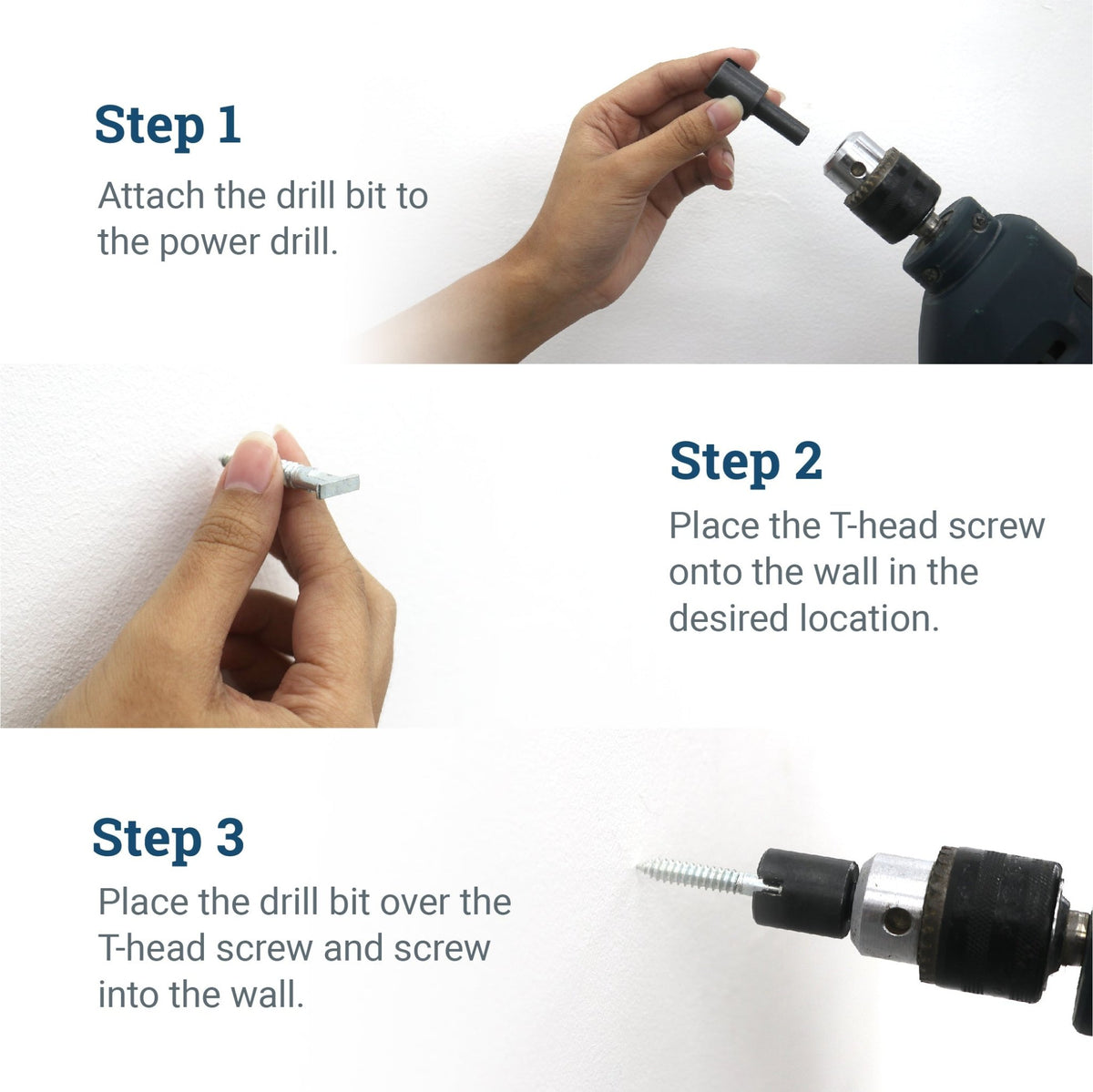
Illustrative image related to drill screw
The Solution:
To effectively tackle this issue, it is crucial for buyers to conduct thorough research on the materials they will be fastening. Understanding the specific requirements for each material type is key. For example, self-drilling screws are ideal for metal applications, as they can penetrate without pre-drilling, whereas wood may require screws with a different thread design for better grip. Buyers should consult technical datasheets provided by manufacturers to ensure they are selecting the correct screw type, diameter, and length. Engaging with suppliers who can offer expert advice and product samples can also facilitate the decision-making process, ensuring the right fit for their projects.
Scenario 2: Corrosion Resistance in Different Environments
The Problem:
In regions with extreme weather conditions, such as high humidity or coastal environments, corrosion can significantly affect the performance and lifespan of drill screws. B2B buyers may struggle to identify screws that offer adequate corrosion resistance, leading to premature failures and increased maintenance costs. This challenge is particularly relevant for construction and manufacturing industries that operate in such environments, where reliability is paramount.
The Solution:
B2B buyers should prioritize sourcing drill screws that are specifically designed for enhanced corrosion resistance, such as those made from stainless steel or coated with protective finishes like zinc or epoxy. When evaluating suppliers, buyers should inquire about the environmental ratings of their screws and whether they meet industry standards for corrosion resistance. Conducting field tests or requesting performance data from suppliers can provide insights into how well the screws will perform in specific environmental conditions. Additionally, developing a proactive maintenance strategy that includes regular inspections can help mitigate the impact of corrosion over time.
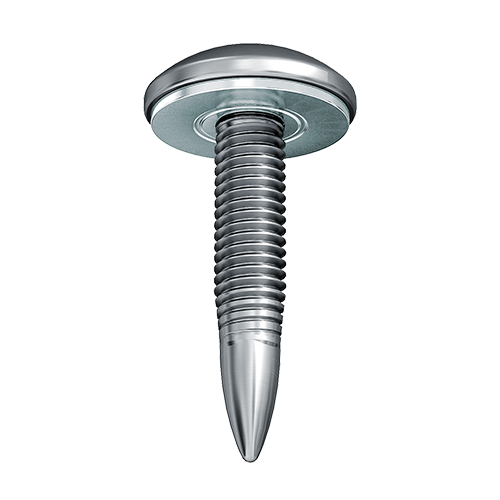
Illustrative image related to drill screw
Scenario 3: Inconsistencies in Product Quality
The Problem:
Inconsistent quality of drill screws can lead to significant issues in assembly and construction projects. Buyers may encounter variations in screw dimensions, strength, or finishes, which can compromise the integrity of the entire assembly. This problem is exacerbated when sourcing from multiple suppliers or overseas manufacturers, where quality control may not meet the required standards. Such inconsistencies can result in costly rework, project delays, and dissatisfaction from end customers.
The Solution:
To address this pain point, B2B buyers should establish strong relationships with trusted suppliers known for their commitment to quality. Conducting audits and quality checks on products before purchase can help ensure that the screws meet specified standards. Implementing a standardized purchasing process that includes clear specifications and quality benchmarks will further minimize the risk of inconsistencies. Buyers should also consider leveraging technology, such as digital inventory management systems, that provide real-time data on product performance and quality, allowing for timely adjustments to orders as needed.
Strategic Material Selection Guide for drill screw
What Are the Key Materials Used for Drill Screws?
When selecting drill screws for various applications, the choice of material significantly influences performance, durability, and cost. Below, we analyze four common materials used in drill screws: stainless steel, carbon steel, zinc-plated steel, and brass. Each material has distinct properties and considerations for international B2B buyers.
How Does Stainless Steel Perform in Drill Screw Applications?
Key Properties: Stainless steel is known for its excellent corrosion resistance, high tensile strength, and ability to withstand extreme temperatures. It typically maintains its integrity in environments exposed to moisture or chemicals.
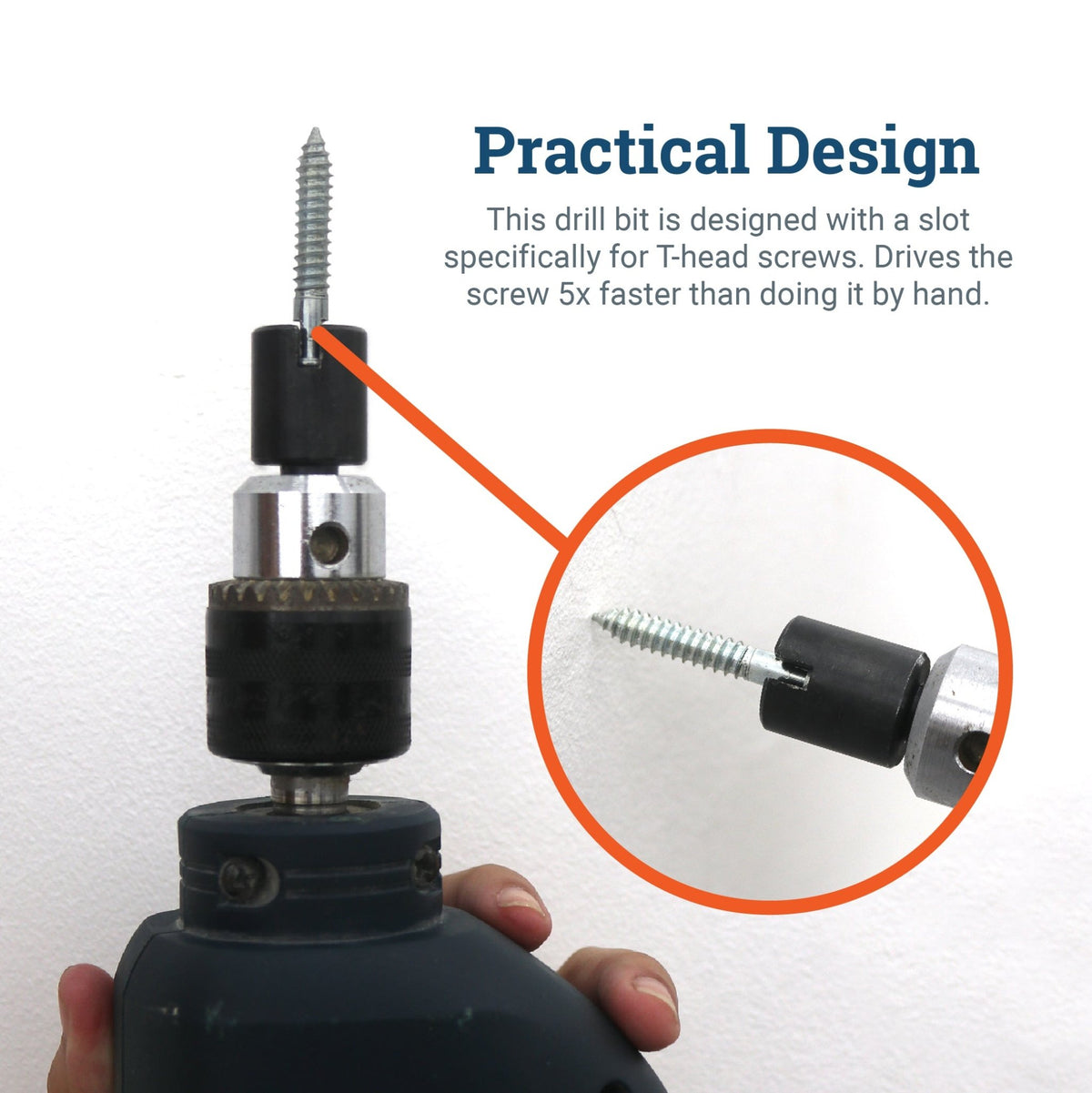
Illustrative image related to drill screw
Pros & Cons: The primary advantage of stainless steel is its durability and resistance to rust, making it suitable for outdoor and marine applications. However, it is more expensive than other materials, which may impact budget-sensitive projects. The manufacturing complexity can also be higher due to the need for specialized tooling.
Impact on Application: Stainless steel drill screws are ideal for applications in coastal regions or areas with high humidity, where corrosion could be a significant issue. They are compatible with various media, including water and chemicals, making them versatile.
Considerations for International Buyers: Compliance with standards such as ASTM A193 or DIN 1.4401 is essential. Buyers in Europe, particularly Germany, may prefer screws meeting specific certifications for quality assurance.
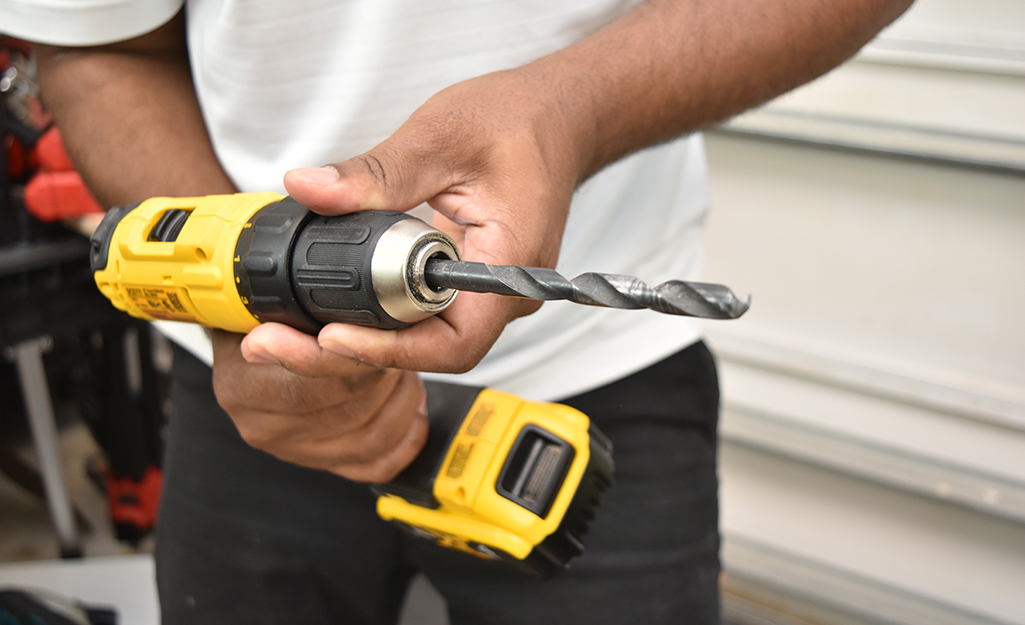
Illustrative image related to drill screw
What Are the Benefits of Carbon Steel for Drill Screws?
Key Properties: Carbon steel offers high strength and hardness, making it suitable for heavy-duty applications. However, it lacks the corrosion resistance of stainless steel unless treated.
Pros & Cons: The main advantage of carbon steel is its cost-effectiveness and availability. It is easier to manufacture and can be produced in various grades. On the downside, without proper coatings, carbon steel is prone to rust and degradation in moist environments.
Impact on Application: Carbon steel drill screws are commonly used in construction and automotive applications where strength is crucial. They are best suited for indoor applications or environments with controlled humidity.
Considerations for International Buyers: Buyers should ensure compliance with relevant standards such as ASTM A307 or JIS B 1171. In regions like Africa and South America, where humidity may vary, additional protective coatings may be required.
How Does Zinc-Plated Steel Compare for Drill Screws?
Key Properties: Zinc-plated steel offers moderate corrosion resistance due to its protective zinc coating, which acts as a barrier against moisture.
Pros & Cons: The primary advantage is the balance between cost and corrosion resistance, making it a popular choice for a wide range of applications. However, the zinc coating can wear off over time, especially in harsh environments, leading to potential rust issues.
Impact on Application: Zinc-plated steel drill screws are suitable for general construction and indoor applications. They can be used in environments where exposure to moisture is limited but are not recommended for prolonged outdoor use.
Considerations for International Buyers: Compliance with standards such as ASTM B633 is crucial. Buyers should be aware of local regulations regarding coatings and environmental impact, especially in the Middle East, where desert conditions can accelerate corrosion.
What Role Does Brass Play in Drill Screw Manufacturing?
Key Properties: Brass is known for its excellent machinability, corrosion resistance, and aesthetic appeal. It performs well in applications requiring low friction.
Pros & Cons: The key advantage of brass is its resistance to tarnishing and corrosion, making it suitable for decorative applications. However, it is softer than other metals, which may limit its use in high-stress environments. Additionally, brass can be more expensive than carbon steel.
Impact on Application: Brass drill screws are commonly used in electrical applications and decorative fixtures where conductivity and appearance are essential. They are not suitable for heavy-duty applications.
Considerations for International Buyers: Compliance with standards such as ASTM B16 is necessary. Buyers in Europe may prefer brass screws for specific applications, while those in other regions should consider the cost implications.
Summary Table of Material Selection for Drill Screws
| Material | Typical Use Case for Drill Screw | Key Advantage | Key Disadvantage/Limitation | Relative Cost (Low/Med/High) |
|---|---|---|---|---|
| Stainless Steel | Marine and outdoor applications | Excellent corrosion resistance | Higher cost and manufacturing complexity | High |
| Carbon Steel | Construction and automotive applications | Cost-effective and strong | Prone to rust without coatings | Low |
| Zinc-Plated Steel | General construction and indoor use | Good balance of cost and corrosion resistance | Coating can wear off over time | Medium |
| Brass | Electrical and decorative applications | Corrosion resistant and aesthetic | Softer material, higher cost | High |
This analysis provides B2B buyers with essential insights into material selection for drill screws, helping them make informed decisions based on application requirements and regional considerations.
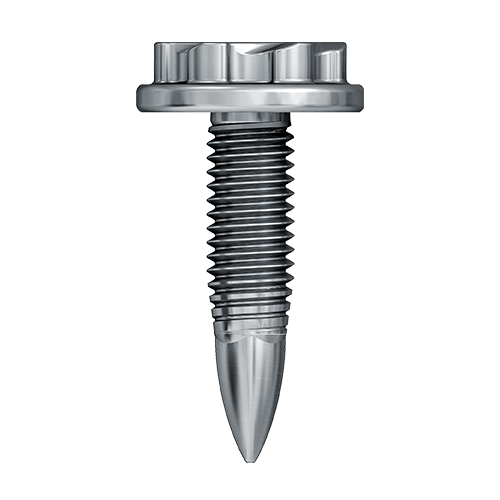
Illustrative image related to drill screw
In-depth Look: Manufacturing Processes and Quality Assurance for drill screw
What Are the Main Stages of Manufacturing Drill Screws?
The manufacturing process for drill screws involves several critical stages that ensure the final product meets the required specifications and quality standards. Here’s a breakdown of these stages:
-
Material Preparation: The process begins with the selection of raw materials, typically carbon steel, stainless steel, or other alloys, which are chosen based on the desired strength, corrosion resistance, and application. These materials are then cut to size and treated to enhance their properties, such as through heat treatment or galvanization for corrosion resistance.
-
Forming: In this stage, the prepared materials are shaped into screws. This is typically done using cold heading, a process where metal is deformed at room temperature to create a head and shank. The use of precision dies ensures that the dimensions are accurate. For self-drilling screws, a drill point is formed during this process, allowing the screw to penetrate materials without pre-drilling.
-
Assembly: After forming, the screws may undergo additional processes, such as threading. This can be achieved through rolling or cutting, depending on the required thread type (coarse, fine, or specialized threads). Additional features like washers or seals may be integrated during this stage, especially for screws intended for roofing or outdoor applications.
-
Finishing: The final stage involves surface treatments to enhance durability and appearance. This may include plating (zinc, nickel, etc.), coating (paint or polymer), or passivation for stainless steel screws. Each treatment is selected based on the environmental conditions the screws will face, such as humidity, temperature, and exposure to chemicals.
What Quality Control Standards Should B2B Buyers Consider?
Quality assurance is paramount in the manufacturing of drill screws, particularly for international B2B transactions where standards can vary significantly. Here are the key quality control standards and practices to consider:
-
International Standards: Many manufacturers adhere to ISO 9001, which outlines criteria for a quality management system. Compliance with this standard ensures a consistent approach to product quality and customer satisfaction. Buyers should inquire about a supplier’s ISO certifications to ensure adherence to internationally recognized quality practices.
-
Industry-Specific Certifications: Depending on the application, additional certifications may be relevant. For instance, CE marking indicates compliance with European safety standards, while API specifications are crucial for products used in the oil and gas industry. Buyers should clarify which certifications apply to their specific needs.
-
Quality Control Checkpoints:
– Incoming Quality Control (IQC): This initial checkpoint verifies the quality of raw materials before production begins. It ensures that all materials meet specified standards.
– In-Process Quality Control (IPQC): During manufacturing, regular checks are performed to monitor the process and detect any deviations from quality standards. This can include dimensional checks and visual inspections.
– Final Quality Control (FQC): After production, a final inspection is conducted to ensure that the finished products meet all specifications and quality standards before shipment.
What Common Testing Methods Are Used in Drill Screw Quality Assurance?
Various testing methods are employed to ensure the integrity and performance of drill screws:
-
Mechanical Testing: Tensile strength tests measure how much force the screw can withstand before breaking. Hardness tests assess the material’s resistance to deformation, while impact tests evaluate the screw’s durability under sudden forces.
-
Corrosion Resistance Testing: For screws intended for outdoor or high-humidity environments, salt spray tests simulate corrosive conditions to determine how well the screw will perform over time.
-
Dimensional Inspection: Precision measurement tools (calipers, gauges) are used to ensure that the screws meet specified dimensions. Automated optical inspection systems may also be employed for high-volume production.
-
Functional Testing: For self-drilling screws, functional tests assess the screw’s ability to penetrate specified materials without pre-drilling, ensuring that the design performs as intended.
How Can B2B Buyers Verify Supplier Quality Control Practices?
When sourcing drill screws, it’s crucial for B2B buyers to verify the quality control practices of potential suppliers. Here are several strategies:
-
Supplier Audits: Conducting on-site audits allows buyers to assess the manufacturing processes, quality control measures, and adherence to international standards firsthand. Audits can uncover potential issues and provide insights into the supplier’s operational capabilities.
-
Requesting Quality Reports: Suppliers should provide documentation detailing their quality control processes, including IQC, IPQC, and FQC results. These reports should highlight any certifications, testing methodologies, and compliance with relevant standards.
-
Third-Party Inspections: Engaging third-party inspection agencies can provide an unbiased assessment of the supplier’s quality practices. These agencies can perform inspections at various stages of production and provide detailed reports on compliance and quality assurance.
-
Certification Verification: Buyers should verify the authenticity of the supplier’s certifications through relevant issuing bodies. This can help confirm that the supplier adheres to the claimed quality standards.
What Are the QC and Certification Nuances for International B2B Buyers?
For international buyers, especially those in regions like Africa, South America, the Middle East, and Europe, understanding local and international QC requirements is essential:
-
Regional Standards: Different regions may have unique standards and certifications. For instance, the European Union has stringent regulations that may not be applicable in other areas. Buyers should be aware of these regional differences to ensure compliance.
-
Customs Regulations: When importing drill screws, customs regulations may require specific documentation proving compliance with quality standards. Buyers should familiarize themselves with these requirements to avoid delays or penalties.
-
Language and Communication Barriers: Effective communication is vital for understanding quality practices. Buyers should ensure that suppliers can provide documentation and support in a language they understand.
-
Cultural Considerations: Business practices can vary significantly across regions. Understanding these cultural nuances can aid in establishing a strong working relationship with suppliers, which is crucial for ongoing quality assurance.
By comprehensively understanding the manufacturing processes, quality control standards, and verification methods, B2B buyers can make informed decisions when sourcing drill screws, ensuring they receive high-quality products that meet their specific needs.
Practical Sourcing Guide: A Step-by-Step Checklist for ‘drill screw’
Introduction
This guide aims to equip B2B buyers with a practical checklist for sourcing drill screws. As critical components in various construction and manufacturing projects, selecting the right drill screws is essential for ensuring product quality and operational efficiency. By following these steps, buyers can make informed decisions that meet their specific needs.
Step 1: Define Your Technical Specifications
Before beginning the procurement process, clearly define the technical specifications required for your drill screws. This includes understanding the material (e.g., stainless steel or carbon steel), size (diameter and length), thread type, and head style (e.g., hex, pan, or flat head). By establishing these parameters, you can streamline your search and ensure compatibility with your application.
Step 2: Research Supplier Credentials
It’s vital to research potential suppliers to verify their credentials. Look for certifications that demonstrate compliance with international quality standards, such as ISO 9001. Additionally, investigate their reputation in the industry by checking reviews and testimonials from other buyers, particularly those within your geographical region.
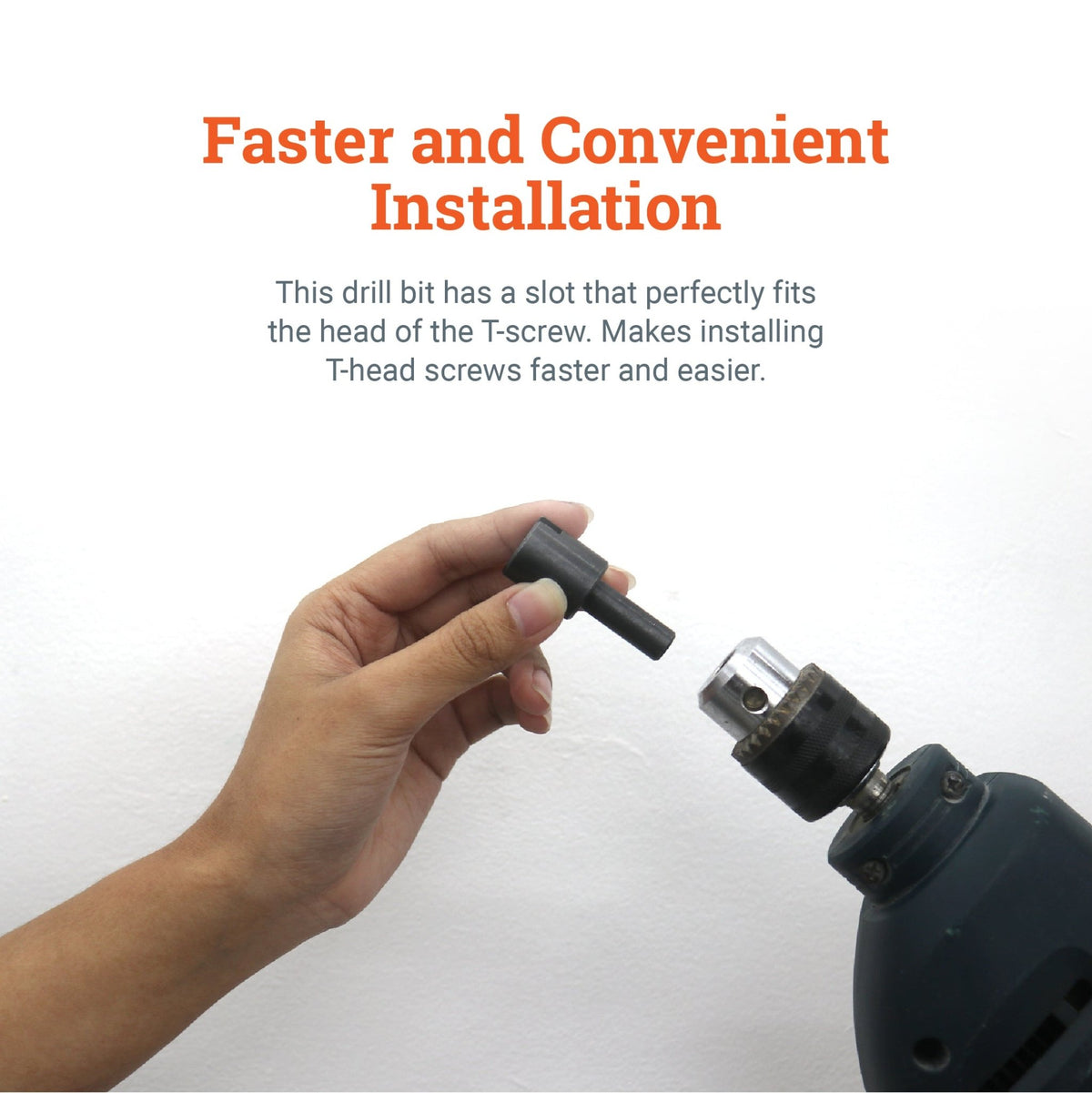
Illustrative image related to drill screw
Step 3: Evaluate Product Range and Availability
Assess the range of drill screws offered by each supplier. A diverse product line can indicate a supplier’s ability to meet varied project needs. Furthermore, check the availability of stock and the supplier’s lead times. This is particularly important for projects with tight schedules, as delays in supply can impact timelines and budgets.
Step 4: Request Samples for Testing
Before placing a bulk order, request samples of the drill screws you intend to purchase. Testing samples allows you to evaluate the quality, strength, and compatibility with your materials. Ensure that the samples reflect the specifications you need and conduct tests that simulate real-world conditions to gauge their performance.
Step 5: Review Pricing and Payment Terms
Pricing is a critical factor in sourcing drill screws. Compare quotes from multiple suppliers to ensure you’re getting competitive rates. Additionally, review payment terms and conditions; flexible payment options can help manage cash flow, especially for larger orders. Look for suppliers that offer bulk discounts or loyalty programs for repeat purchases.
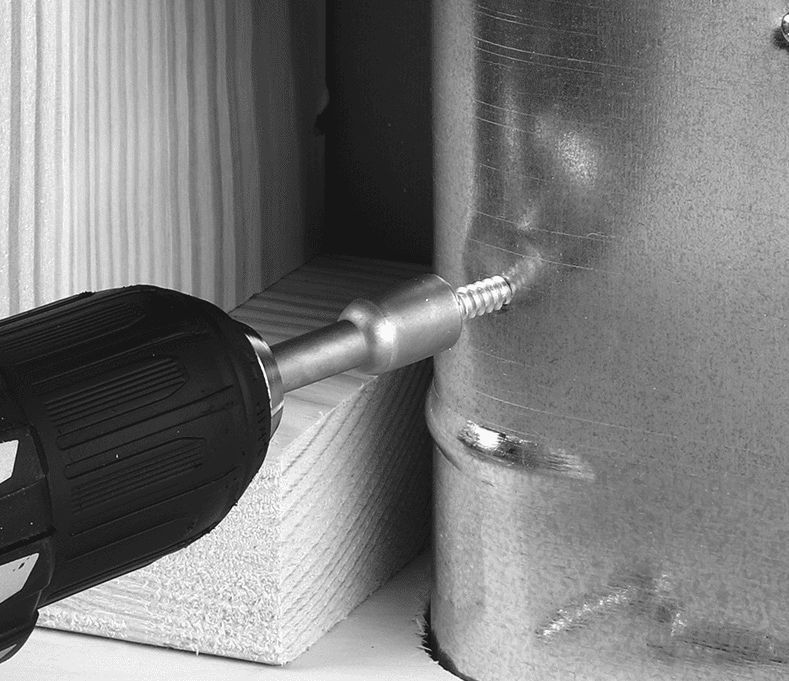
Illustrative image related to drill screw
Step 6: Assess Customer Support and After-Sales Services
Strong customer support can significantly enhance your purchasing experience. Evaluate how responsive suppliers are to inquiries and whether they provide technical assistance if needed. Also, inquire about after-sales services, such as warranties and return policies, as these can protect your investment in case of defective products or incorrect orders.
Step 7: Finalize the Purchase Agreement
Once you have selected a supplier, ensure that all terms and conditions are clearly outlined in a purchase agreement. This should include delivery schedules, payment terms, and specifications for the drill screws. A well-defined contract minimizes misunderstandings and protects both parties, ensuring a smooth transaction.
By following this checklist, B2B buyers can effectively navigate the sourcing process for drill screws, ensuring they select the best products for their specific applications while fostering strong supplier relationships.
Comprehensive Cost and Pricing Analysis for drill screw Sourcing
What Are the Key Cost Components for Sourcing Drill Screws?
When sourcing drill screws, understanding the various cost components is essential for effective budgeting and price negotiation. The primary cost factors include:
-
Materials: The type of materials used—such as carbon steel, stainless steel, or specialized alloys—significantly affects the overall cost. Higher-grade materials often yield better durability and corrosion resistance, which can justify higher prices.
-
Labor: Labor costs encompass wages paid to workers involved in the manufacturing process. This can vary based on the location of the manufacturer, with labor rates typically lower in developing regions compared to more industrialized countries.
-
Manufacturing Overhead: This includes indirect costs associated with production, such as utilities, equipment maintenance, and facility costs. Efficient manufacturing processes can help reduce overhead costs, leading to better pricing for buyers.
-
Tooling: The investment in tooling and machinery for producing drill screws is substantial. Custom tooling for unique specifications can further increase costs but may be necessary for specific applications.
-
Quality Control (QC): Rigorous QC processes ensure that the screws meet required standards and specifications. Implementing these processes adds to the overall cost but is crucial for maintaining product quality.
-
Logistics: Transportation costs, including shipping and handling, can vary widely depending on the distance from the supplier to the buyer, as well as the shipping method. International shipments often incur additional fees and longer lead times.
-
Margin: Suppliers add a profit margin to cover their operational costs and risks. Understanding typical margins in the industry can help buyers negotiate better prices.
What Influences the Pricing of Drill Screws?
Several factors can influence the pricing structure of drill screws, which are critical for B2B buyers to consider:
-
Volume/MOQ (Minimum Order Quantity): Suppliers often offer better pricing for larger orders. Understanding the optimal order size can lead to significant savings.
-
Specifications and Customization: Custom specifications, such as unique lengths, head styles, or coatings, may lead to higher prices. Standard products generally come at a lower cost.
-
Materials and Quality Certifications: The choice of materials impacts pricing. Additionally, certifications (like ISO or ASTM) for quality can increase costs but provide assurance of product reliability.
-
Supplier Factors: The reputation and reliability of the supplier can affect pricing. Established suppliers with a track record of quality may charge more but provide better service and product consistency.
-
Incoterms: The terms of shipping and delivery (Incoterms) can influence costs. Understanding whether prices include shipping, insurance, or other fees is crucial for accurate budgeting.
How Can Buyers Negotiate Better Prices for Drill Screws?
B2B buyers can adopt several strategies to achieve cost-efficiency and favorable pricing when sourcing drill screws:
-
Research and Benchmarking: Conduct thorough market research to benchmark prices across suppliers. This knowledge equips buyers with the information needed for effective negotiation.
-
Total Cost of Ownership (TCO): Consider the TCO, which includes purchase price, shipping, handling, and potential costs related to quality failures. A lower initial price may not always equate to overall savings.
-
Build Relationships: Establishing strong relationships with suppliers can lead to better pricing and service. Suppliers may be more inclined to negotiate prices for trusted customers.
-
Leverage Volume: If possible, consolidate orders across multiple projects to meet or exceed minimum order quantities. This approach can unlock bulk pricing benefits.
-
Be Aware of Regional Pricing Nuances: Pricing can vary significantly by region due to local economic factors, tariffs, and market demand. Buyers from Africa, South America, the Middle East, and Europe should consider these factors when sourcing.
Disclaimer on Pricing
It is essential to note that the prices for drill screws can fluctuate based on market conditions, supplier changes, and raw material costs. The figures mentioned in this analysis are indicative and should be verified with suppliers for the most accurate and current pricing.
Alternatives Analysis: Comparing drill screw With Other Solutions
Understanding Alternative Solutions to Drill Screws
In the fast-paced world of B2B procurement, understanding the range of fastening solutions available is crucial for making informed purchasing decisions. While drill screws are a popular choice due to their efficiency and ease of use, there are several alternatives that may better suit specific applications or operational requirements. This section provides a comparative analysis of drill screws against two viable alternatives: self-tapping screws and rivets.
Comparison Table
| Comparison Aspect | Drill Screw | Self-Tapping Screw | Rivet |
|---|---|---|---|
| Performance | High, can drill and fasten in one step | Moderate, requires pre-drilled hole | High, provides strong permanent fastening |
| Cost | Moderate, varies by size and material | Generally lower than drill screws | Higher initial cost, but economical for large volumes |
| Ease of Implementation | Very easy, no pre-drilling needed | Requires some pre-drilling | Requires specialized tools for installation |
| Maintenance | Low, typically durable | Low, but can loosen over time | Very low, permanent installation |
| Best Use Case | Metal and wood applications, quick assembly | Thin materials, plastic, wood | Structural applications, high-stress areas |
Detailed Breakdown of Alternatives
What Are Self-Tapping Screws and Their Benefits?
Self-tapping screws are designed to create their own hole as they are driven into the material. They are particularly effective for use in softer materials like plastic or thin metals. The advantages of self-tapping screws include their lower cost compared to drill screws and their ease of use, though they do require a pre-drilled pilot hole for optimal performance. However, they may not be suitable for thicker materials where structural integrity is critical, as they can loosen over time.
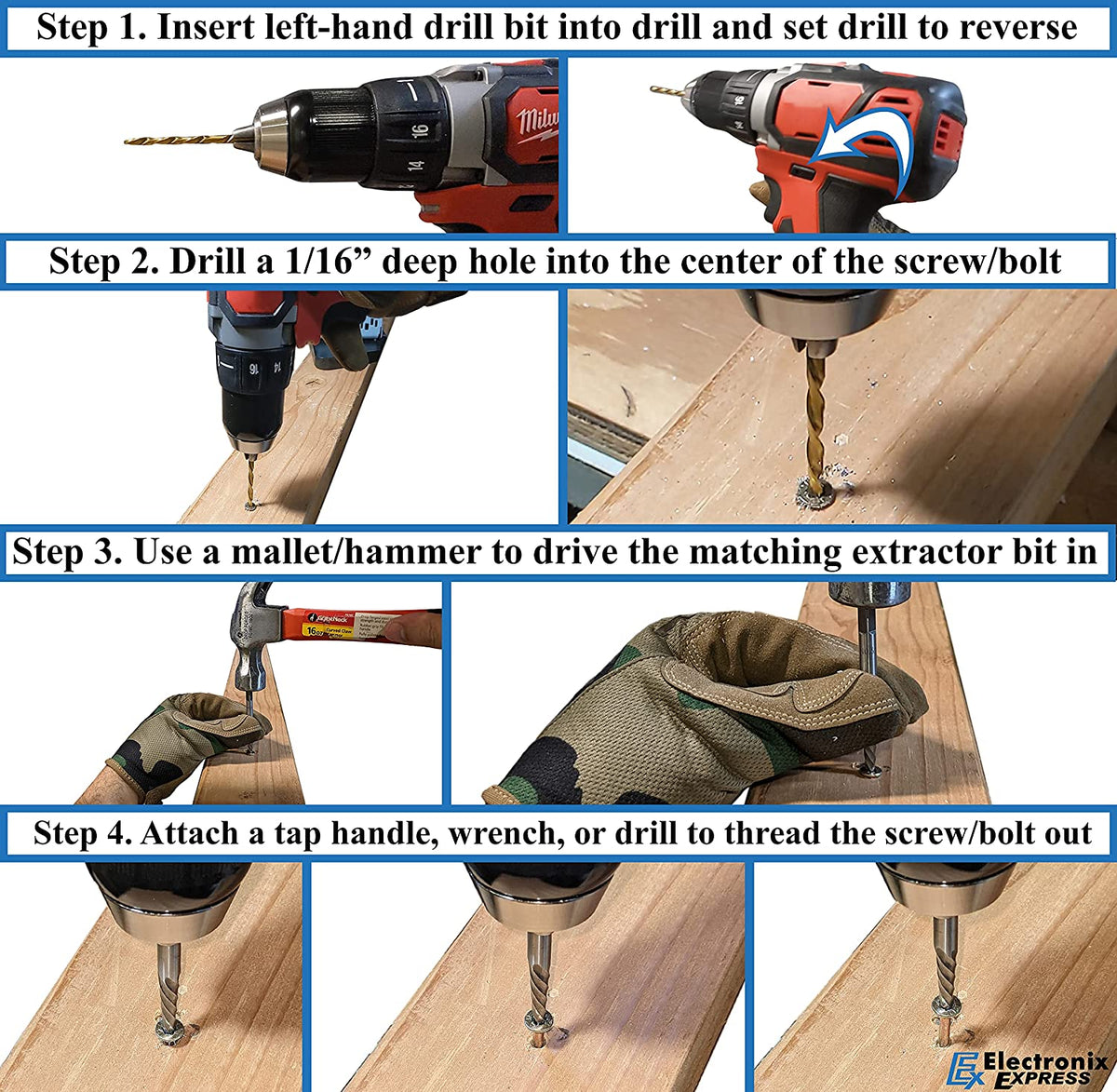
Illustrative image related to drill screw
How Do Rivets Compare to Drill Screws?
Rivets are a fastening method that involves a metal pin and a corresponding hole. They are installed using a rivet gun and provide a permanent connection that is highly resistant to vibration and shear forces. Rivets are ideal for structural applications where strength and durability are paramount. The main drawbacks are the higher initial cost and the need for specialized installation tools, which can be a barrier for some businesses. However, for large-scale applications, rivets may provide long-term savings due to their reliability.
How to Choose the Right Fastening Solution for Your Needs
When selecting a fastening solution, B2B buyers should consider the specific requirements of their projects, including material type, thickness, and the environmental conditions to which the finished product will be exposed. Drill screws offer a versatile and efficient solution for many applications, but for projects involving softer materials or requiring a permanent bond, self-tapping screws or rivets might be more appropriate. Analyzing the performance, cost, ease of implementation, and maintenance requirements will guide buyers in making the most suitable choice for their operational needs. By aligning the choice of fastening solution with project demands, businesses can enhance efficiency and ensure long-term reliability in their assemblies.
Essential Technical Properties and Trade Terminology for drill screw
What Are the Key Technical Properties of Drill Screws?
Understanding the essential technical specifications of drill screws is crucial for B2B buyers, especially those involved in construction, manufacturing, or assembly. Here are some critical properties to consider:
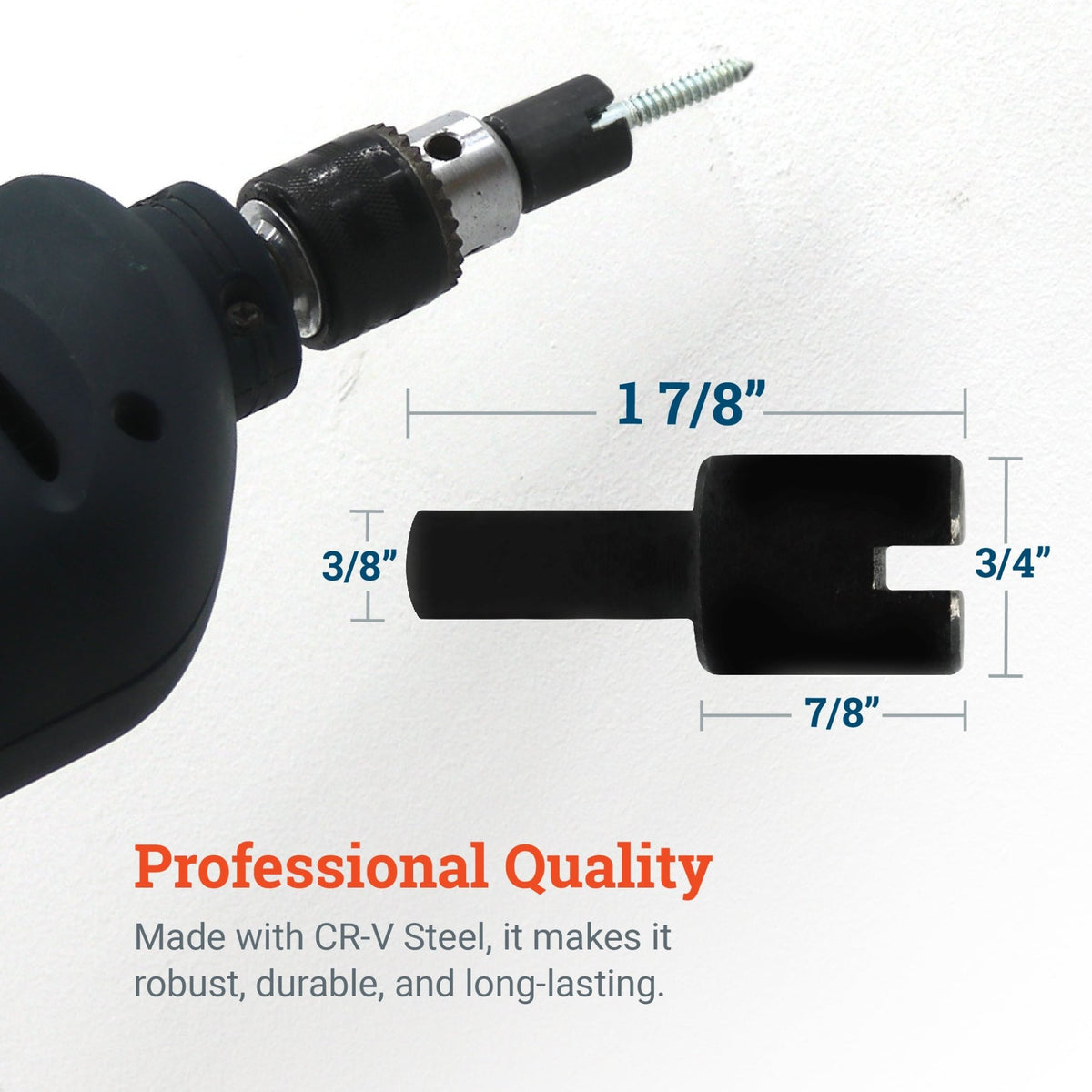
Illustrative image related to drill screw
-
Material Grade
Drill screws are typically made from materials such as stainless steel, carbon steel, or alloy steel. The material grade determines the screw’s strength, corrosion resistance, and suitability for specific environments. For example, stainless steel is ideal for outdoor applications due to its resistance to rust and corrosion, making it a preferred choice for construction projects in humid or coastal areas. -
Diameter and Length
The diameter of a drill screw is vital for ensuring a proper fit and load-bearing capacity. Common diameters include #6, #8, #10, and #12, while lengths can vary from 1/2 inch to 6 inches. Selecting the right size is essential for achieving optimal performance in fastening applications, preventing issues such as stripping or breakage. -
Thread Style
The thread style (coarse, fine, hi-lo, or spiral) affects the screw’s holding power and installation efficiency. Coarse threads provide better grip in softer materials, while fine threads are more suitable for harder substrates. Understanding thread styles helps buyers choose the right screw for their specific applications, enhancing structural integrity. -
Point Type
Drill screws come with various point types, such as Type 3 (self-drilling) or Type 17 (self-tapping). Self-drilling screws can create their own pilot hole, reducing installation time and labor costs. Choosing the correct point type is crucial for ensuring efficient and effective fastening, particularly in metal-to-metal or metal-to-wood applications. -
Finish and Coating
The finish or coating on drill screws, such as zinc plating or black oxide, affects their resistance to corrosion and wear. A high-quality finish can significantly prolong the life of the screw, making it an important consideration for outdoor or industrial applications where exposure to the elements is common. -
Load Capacity
Load capacity refers to the maximum weight a screw can support without failure. This property is crucial for ensuring that projects meet safety standards and perform as expected. Buyers should verify load ratings based on their specific applications to avoid structural failures.
What Are Common Trade Terms Used in the Drill Screw Industry?
Navigating the language of the fastener industry can be challenging. Here are some essential trade terms that B2B buyers should know:
-
OEM (Original Equipment Manufacturer)
An OEM is a company that produces parts or equipment that may be marketed by another manufacturer. For drill screws, working with OEMs allows buyers to source customized solutions tailored to specific project requirements. -
MOQ (Minimum Order Quantity)
MOQ refers to the smallest quantity of a product that a supplier is willing to sell. Understanding MOQ is essential for budgeting and inventory management, especially for large-scale projects where demand can fluctuate. -
RFQ (Request for Quotation)
An RFQ is a document sent to suppliers requesting pricing and terms for specific products. It is a critical step in the procurement process, allowing buyers to compare options and negotiate better deals. -
Incoterms (International Commercial Terms)
Incoterms are a set of standardized international trade terms used to define the responsibilities of buyers and sellers in shipping and delivery. Familiarity with Incoterms helps buyers understand shipping costs, risks, and responsibilities, ensuring smoother transactions. -
Lead Time
Lead time refers to the time it takes from placing an order to receiving the goods. Understanding lead times is crucial for project planning and inventory management, especially in industries where delays can impact operations. -
Certifications
Certifications indicate that a product meets specific industry standards for quality and safety. Common certifications for drill screws include ISO and ASTM. Ensuring that products have the necessary certifications can help buyers mitigate risks and ensure compliance with regulatory requirements.
By grasping these technical properties and trade terms, B2B buyers can make informed decisions that enhance project efficiency and ensure product reliability.
Navigating Market Dynamics and Sourcing Trends in the drill screw Sector
The drill screw sector is witnessing a robust transformation driven by various global dynamics and emerging trends. The increasing demand for efficient and cost-effective fastening solutions is primarily fueled by the expansion of construction and manufacturing sectors across Africa, South America, the Middle East, and Europe. Notably, regions such as Germany and Vietnam are adopting advanced manufacturing technologies, which are propelling the demand for high-quality, self-drilling screws. These screws, known for their ease of use and reduced installation time, are becoming essential in various applications, including roofing, HVAC installations, and metal fabrication.
In addition to traditional sourcing methods, buyers are increasingly leveraging digital platforms for procurement. E-commerce solutions and online marketplaces are becoming crucial for connecting manufacturers with international buyers. This shift not only streamlines the purchasing process but also enhances transparency in pricing and availability. Moreover, innovations in logistics and supply chain management are allowing for quicker delivery times, which is vital for businesses operating in fast-paced markets. As competition intensifies, suppliers who can provide detailed product specifications, certifications, and responsive customer service will likely gain a competitive edge.
How are Sustainability and Ethical Sourcing Shaping the Drill Screw Market?
Sustainability and ethical sourcing are now pivotal considerations for B2B buyers in the drill screw market. The environmental impact of manufacturing processes and raw materials sourcing is under increasing scrutiny. Buyers are increasingly seeking suppliers who demonstrate a commitment to sustainable practices, such as using recycled materials or employing energy-efficient manufacturing techniques. The push for eco-friendly products is not just a trend; it reflects a broader shift towards corporate social responsibility (CSR) in business operations.
Certifications such as ISO 14001 for environmental management and adherence to initiatives like the UN Sustainable Development Goals are becoming essential for suppliers aiming to attract international buyers. Furthermore, the growing interest in green construction practices is motivating manufacturers to develop drill screws that are not only high-performing but also made from sustainable materials. This shift not only helps in reducing the overall carbon footprint but also enhances brand reputation among environmentally conscious consumers.
What is the Historical Context Behind the Evolution of Drill Screws?
The history of drill screws dates back to the late 19th century, with the advent of self-tapping technologies. Initially designed for wood applications, these fasteners evolved to meet the demands of the burgeoning metal and construction industries. The introduction of self-drilling screws marked a significant milestone, as it eliminated the need for pre-drilling, enhancing efficiency and reducing labor costs. Over the decades, advancements in materials, such as the use of stainless steel and specialized coatings for corrosion resistance, have further improved the performance and longevity of drill screws. Today, these fasteners are integral to a multitude of applications, from residential construction to heavy industrial projects, reflecting their crucial role in modern engineering and manufacturing.
Conclusion
Navigating the complexities of the drill screw market requires an understanding of the current dynamics, sourcing trends, and sustainability imperatives. For international B2B buyers, particularly in diverse regions like Africa, South America, the Middle East, and Europe, aligning procurement strategies with technological advancements and ethical practices will be essential for maintaining a competitive edge in the marketplace. As the sector continues to evolve, staying informed about these trends will enable buyers to make strategic sourcing decisions that support both business goals and environmental stewardship.
Frequently Asked Questions (FAQs) for B2B Buyers of drill screw
-
How do I select the right drill screw for my project?
Choosing the right drill screw involves considering the material you’ll be fastening, the thickness of the materials, and the environmental conditions. For instance, stainless steel screws are ideal for outdoor use due to their corrosion resistance, while carbon steel screws may be suitable for indoor applications. Additionally, the screw length and head style should match your project’s requirements, ensuring a secure fit. Always consult with your supplier for recommendations based on your specific needs. -
What is the best type of drill screw for metal applications?
For metal applications, self-drilling screws are typically the best choice. These screws have a drill point that allows them to create their own hole as they are driven in, eliminating the need for pre-drilling. Choose screws with a hex head for better torque and a secure grip. Depending on the thickness of the metal, ensure that the screw length and diameter are sufficient to provide a strong hold. -
What factors should I consider when vetting international suppliers of drill screws?
When vetting suppliers, assess their manufacturing capabilities, certifications, and reputation in the industry. Look for suppliers that adhere to international standards, such as ISO certifications, to ensure product quality. It’s also beneficial to request samples to evaluate the screws’ performance and durability. Moreover, check reviews and references from other businesses to gauge their reliability and customer service. -
What are the common minimum order quantities (MOQs) for drill screws?
Minimum order quantities for drill screws can vary widely depending on the supplier and the type of screws. Generally, MOQs can range from 100 to several thousand pieces. It’s essential to discuss your specific needs with suppliers, as some may be flexible with MOQs, especially for first-time orders or large contracts. Be sure to clarify any potential discounts for bulk purchases. -
What payment terms should I expect when ordering drill screws internationally?
Payment terms can differ based on the supplier and your relationship with them. Common terms include upfront payment, partial payment upon order confirmation, and the balance upon shipment. Many suppliers also accept letters of credit, which provide security for both parties. Always negotiate terms that align with your cash flow and ensure that they are clearly outlined in the purchase agreement. -
How do I ensure quality assurance for drill screws sourced internationally?
To ensure quality, request detailed product specifications and certifications from the supplier. Conduct quality inspections either through third-party agencies or on-site visits if feasible. Implement a quality control process that includes testing samples upon arrival to verify they meet your standards. Establishing a clear return policy for defective products can also safeguard your investment. -
What logistics considerations should I keep in mind when importing drill screws?
When importing drill screws, consider shipping methods, lead times, and customs regulations. Choose a reliable freight forwarder who understands the complexities of international shipping. Factor in potential delays at customs, and ensure that all necessary documentation, such as bills of lading and import permits, is in order. Additionally, be aware of tariffs and duties that may apply to your order. -
Can drill screws be customized for specific applications?
Yes, many suppliers offer customization options for drill screws, such as different lengths, head styles, and coatings to enhance corrosion resistance. Customization can be particularly beneficial for unique applications or specific industry standards. Discuss your requirements with the supplier to explore available options and any associated costs or lead times for customized products.
Top 5 Drill Screw Manufacturers & Suppliers List
1. GRK – Recommended Screws and Drill Bit Sizes
Domain: reddit.com
Registered: 2005 (20 years)
Introduction: Drill bit size: 3/32″ recommended for softwoods; alternative sizes mentioned: 7/64″ or 1/8″. Screw types discussed: Philips head screws, deck screws, square drive (Robertson) screws. Recommended brands: GRK screws (Torx and self-tapping). Standard screw sizes mentioned: #8, 1 1/4″, and 1 3/4″. Issues with zinc screws noted, particularly their tendency to strip.
2. Hilti – Screws
Domain: hilti.com
Registered: 1995 (30 years)
Introduction: Screws – Hilti USA
Types: Cement board screw (2), Drywall screw (17), Framing and sidelap screws (15), Metal screws (13), Self-drilling screws (1), Wood screws (6)
Base materials: Aluminium (4), Carbon steel (19), Drywall (1), Metal (28), Steel (1), Wood (7)
Material composition: Bi-metal A2 and carbon steel (3), Carbon steel (40), Case hardened carbon steel (9), Stainless steel A2 (1), Stainle…
3. Steelman Tools – Screw & Drill Bits
Domain: steelmantools.com
Registered: 2005 (20 years)
Introduction: Screw & Drill Bits: Designed to install or remove fasteners of various shapes and styles, and to drill through wood, plastic, aluminum, and thin gauge steel. Available in standard corded and cordless drill bits, as well as impact drill styles. These bits provide premier performance for both home and professional shop use. Products include: STEELMAN # 78633 50-Piece Impact Driver Bit Set (Regular p…
4. Drill Types – Key Techniques and Screws
Domain: diy.stackexchange.com
Registered: 2009 (16 years)
Introduction: 1. Types of Drills: 18-Volt Lithium-ion Drill, 12-Volt Impact Driver, 12-Volt Lithium-ion Pocket Driver. 2. Drill Technique: Keep the bit inline with the screw, apply firm inward pressure, use slower steady power generally, and avoid over-torquing. 3. Screw Types: Flat-head/slotted screws, Phillip’s head screws, Pozidriv screws, Torx screws, Square/Robertson screws. 4. Bit Quality: Use correctly-f…
5. This Old House – Drill Drivers
Domain: thisoldhouse.com
Registered: 1998 (27 years)
Introduction: Drill drivers are versatile power tools that combine the functions of a drill and a screwdriver. Key components include: Battery pack (provides power to cordless models), Chuck (holds the drill bit or screwdriver bit), Clutch (adjusts torque to prevent overdriving), Forward/reverse switch (changes bit rotation direction), Variable speed trigger (controls rotation speed). Selecting the right bit is…
Strategic Sourcing Conclusion and Outlook for drill screw
What Are the Key Takeaways for Strategic Sourcing of Drill Screws?
In today’s competitive landscape, strategic sourcing of drill screws is paramount for B2B buyers aiming to enhance operational efficiency and reduce costs. By understanding the diverse range of self-drilling screws available—including various sizes, materials, and point types—buyers can tailor their procurement strategies to meet specific project requirements. Additionally, leveraging bulk purchasing options and supplier relationships can yield significant savings and ensure timely delivery, which is critical for maintaining project schedules.
How Can International Buyers Benefit from Strategic Sourcing?
For international B2B buyers, particularly from regions like Africa, South America, the Middle East, and Europe, the value of strategic sourcing extends beyond cost savings. It provides access to innovative products that enhance construction quality and durability. As industries increasingly prioritize sustainability, sourcing from suppliers committed to eco-friendly practices can also align with corporate social responsibility goals.
What’s Next for B2B Buyers in the Drill Screw Market?
As we look ahead, the demand for high-quality drill screws is expected to rise, driven by ongoing construction and manufacturing projects globally. Now is the time for buyers to evaluate their sourcing strategies, engage with reliable suppliers, and explore new technologies that can streamline their procurement processes. Embrace the opportunity to enhance your supply chain efficiency and ensure your projects are equipped with the best fastening solutions available.
Important Disclaimer & Terms of Use
⚠️ Important Disclaimer
The information provided in this guide, including content regarding manufacturers, technical specifications, and market analysis, is for informational and educational purposes only. It does not constitute professional procurement advice, financial advice, or legal advice.
While we have made every effort to ensure the accuracy and timeliness of the information, we are not responsible for any errors, omissions, or outdated information. Market conditions, company details, and technical standards are subject to change.
B2B buyers must conduct their own independent and thorough due diligence before making any purchasing decisions. This includes contacting suppliers directly, verifying certifications, requesting samples, and seeking professional consultation. The risk of relying on any information in this guide is borne solely by the reader.
